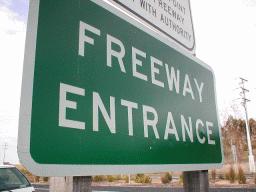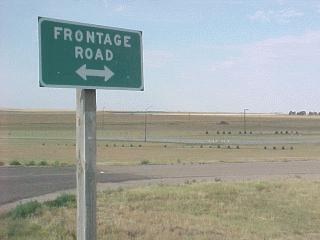Who put the “free” in “freeway”?
The motto of San Antonio toll road opponents is “Keep our FREEways free!” However, the term freeway doesn’t really mean that it’s free to drive on. Now admittedly my Webster’s New Collegiate Dictionary has “a toll-free highway” as its second definition for freeway. But that use is purely colloquial and can lead to a lot of misunderstandings when talking about toll roads. Besides, if that was the true definition of a freeway, then the little residential street in front of most of our homes would be a “freeway”, and we all instinctively know that that’s just not the case.
So then, just what is the definition of a freeway?
A Texas shibboleth
One of the first things that astute visitors and new arrivals to Texas notice is the ubiquity of frontage roads along our freeways. Indeed, Texas has more frontage roads than any other place on the face of the planet. The reason for this phenomenon is because, unlike most other states, Texas frequently upgrades existing roadways to freeways instead of building them on entirely new right-of-way, especially in urban areas. For instance, most of I-35 through Texas was built along what used to be US 81. Because adjacent property owners already had access to the existing highway, the state would either have had to purchase those access rights when the road was upgraded (freeways are controlled-access), which in many cases might actually have resulted in a full-blown taking of the property, or they would have had to devise a way to maintain access to those properties. Texas chose the latter.

